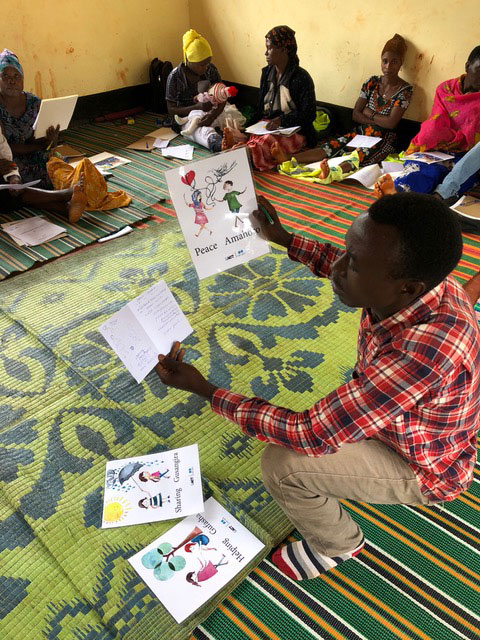News & Updates
young refugees in Chad benefiting from education programme
17 October 2018

According to a report from TheirWorld, refugees in Chad are being trained as teachers to provide home learning to thousands of young children living in camps. The eastern part of Chad hosts around 320,000 refugees from the Darfur region of Sudan, who fled their communities in 2003 due to the war that killed over 300,000 people.
Chad is one of the poorest countries in Africa and Darfuri refugees live in remote areas along its eastern border. Almost 15 years later, Darfur’s conflict has prevented thousands of families from returning home.
The refugees in this area have faced severe cuts in World Food Programme food rations and have lost support from many international aid agencies. These cut backs have had a negative impact on the availability and quality of education. Because of this, the humanitarian community in Chad has shifted their efforts towards self-reliance, TheirWorld reports.
The education project, called “Little Ripples”, is run by a US-based not-for-profit organisation called iActivism, or iACT. iACT said its project is refugee-led in order to address the needs of children in communities that experience trauma from violence, displacement and uncertainty.
Sara-Christine Dallain, Director of International Programmes at iACT, explained the background of Little Ripples to TheirWorld News:
“My executive director had been travelling to the Chad camps since 2005 and over the years we were primarily an advocacy organisation, mostly raising awareness and funds. We started noticing big gaps in programmes and also gaps in the quality of programmes. One of the camp leaders was taking us around and said, ‘Look how many young children are around, are unsafe, are not being educated or nurtured or cared for’.”
The TheirWorld report explains that the Little Ripples project is led by refugee teams of camp coordinators, education directors and teachers. Instead of school buildings, refugees’ homes are altered to provide a safe learning space for both teachers and children. Refugee teachers learn the curriculum through training and adapt it to their culture and context.
Dallain added:
“Empowering refugees to adapt and lead an education programme fosters ownership from the outset, ensures the solution is culturally relevant, and enables the programme to be sustainable beyond the support of international aid agencies.”
If you’d like to stay informed on the latest updates in aid and development, please sign up for the AIDF newsletter.
Photo credit: iACT